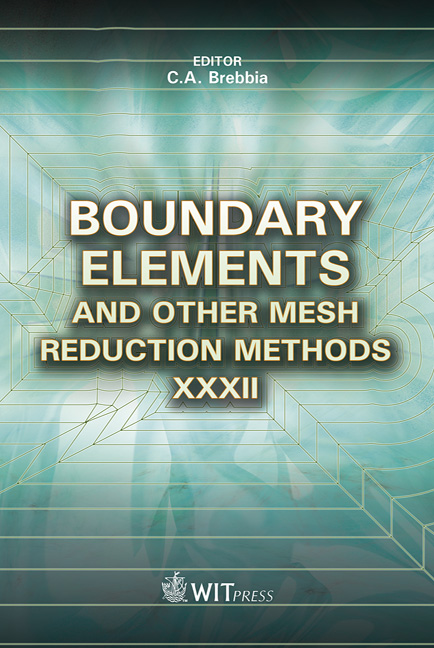Analysis Of Slab Bridges Using Boundary Element Method
Price
Free (open access)
Transaction
Volume
50
Pages
7
Page Range
287 - 293
Published
2010
Size
2,029 kb
Paper DOI
10.2495/BE100251
Copyright
WIT Press
Author(s)
E. M. Galuta & M. Taghdi
Abstract
This paper presents the advantages of using Boundary Element Method (BEM) as a numerical technique, compared with the other numerical methods such as a Finite Element Method (FEM), to analyze three dimensional problems such as bridges. The mathematical formulation of the boundary element equation is also presented. Analyzing the bridge deck by BEM would be more efficient than by FEM, where only the boundaries along the bridge deck have to be discretized into one-dimensional elements .Therefore, the dimensions of the analysis are reduced, and consequently the input data is significantly reduced. For bridges subjected to moving loads, it is necessary to subdivide the bridge deck into a number of finer meshes in FEM, thus it leads to huge number of simultaneous equations and large band width. In addition to that the mesh needs to be changed as the truck loads are moving along the bridge deck, while in BEM the moving loads do not affect the size of the mesh and the mesh does not require any change. A very important application of the BEM is that there is no interpolation of the solution within the domain, and for a given solution on the surface, the results at interior points involve no approximations. Two numerical examples were presented to demonstrate the accuracy and the advantages of using BEM over the other numerical methods in the bridge analysis. Keywords: bridges, boundary element, bridge deck, inite element, slab bridges, mesh. 1 Introduction In the analysis of slab bridges, the most commonly domain-type method used is Finite Element Method. The method can solve complex material properties in a finite domain and can be applied to analyze any types of bridges. However, when
Keywords
bridges, boundary element, bridge deck, inite element, slab bridges, mesh





